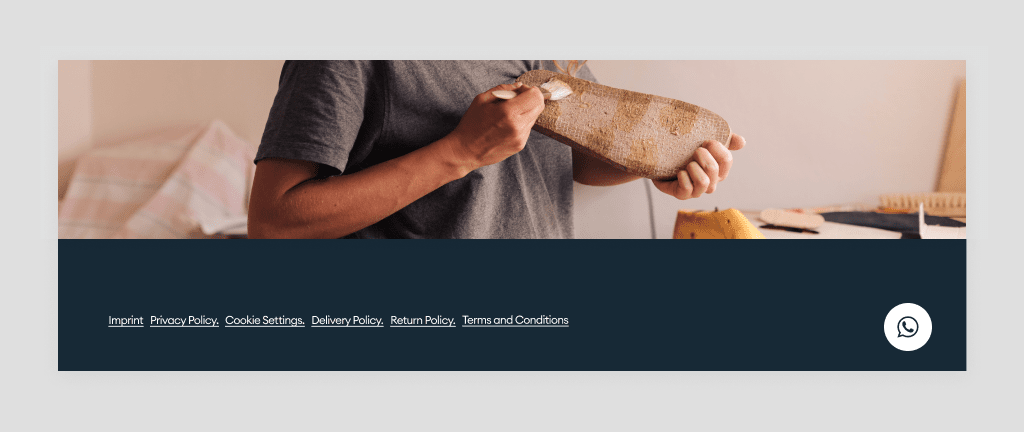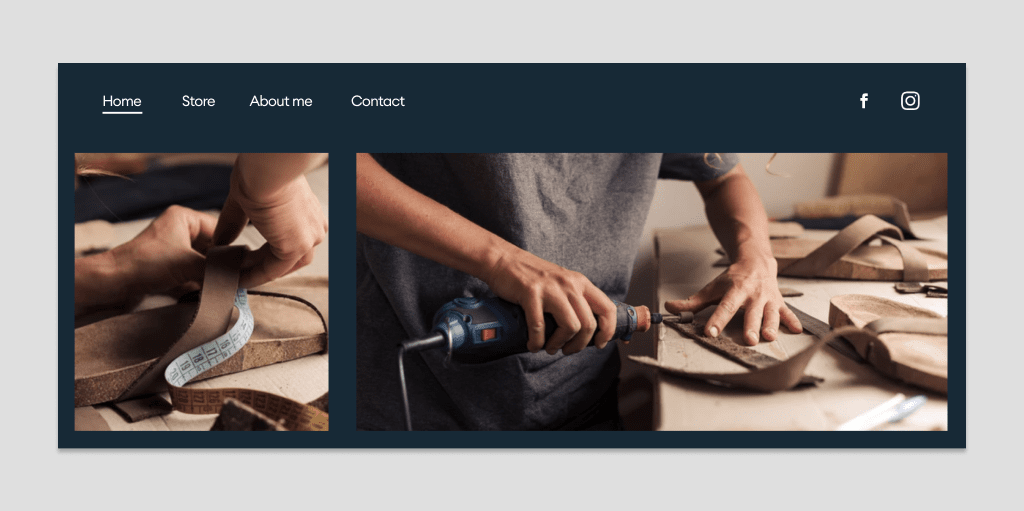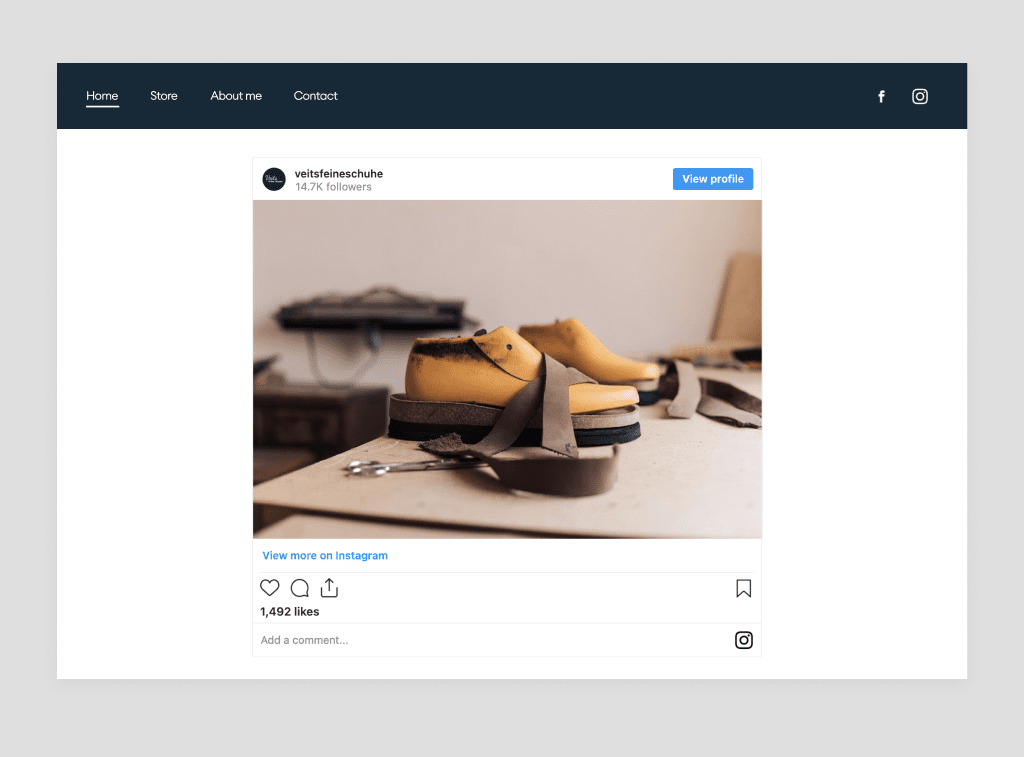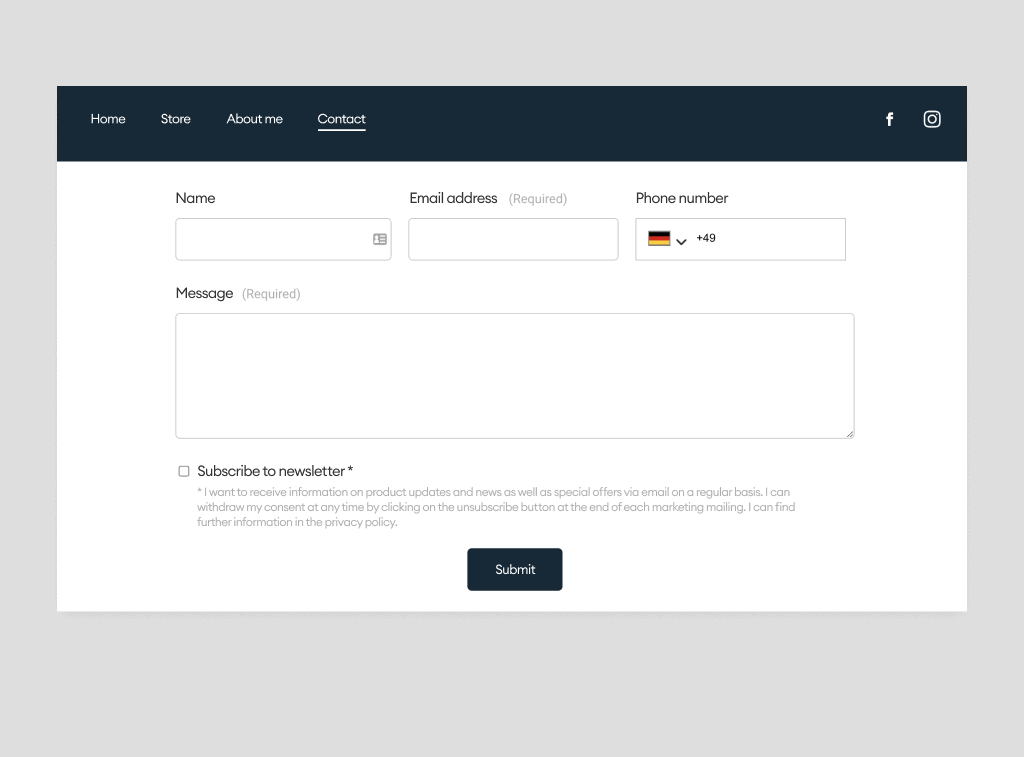As a business owner, you want to build good relationships with your customers. Those customers give your business a solid foundation. After all, it is much harder to attract a new customer than it is to keep an existing customer happy. Happy customers talk about you and recommend you to others. They come back to your business and buy again.
A customer relationship is like any other relationship: good communication is the key. That means sharing important information with people who are interested. It also means being available when the customer has something to share with you.
Your website is one of the first touchpoints for your customer. It’s where you can start building the relationship and where you can make communication very easy. Let’s set you up for strong customer relationships, without increasing your workload.
Lower the barrier for customer contact
Customer contact is an area where small businesses can really stand out. No need for automated answering machines or complicated contact forms. What your visitors want is a simple way to get into contact with a real human who actually knows what they are talking about. That’s why we have integrated a WhatsApp button in Jimdo.
With over 2 billion active users, WhatsApp is the biggest messaging platform in the world. As a business owner, you can let your customers reach out to you using WhatsApp for communication with your customers. For simple one to one chat conversations, your customers don’t need to sign up for anything.
You can focus on your regular tasks as a business owner. Just make sure to have your phone around, in case messages come in.
How to set it up at Jimdo
- Open the Contacts section on your dashboard
- Select WhatsApp widget
- Enter your phone number in the international format
- Click Add WhatsApp
What customers see
A small WhatsApp widget will appear in the lower right corner of your website, so visitors can open a WhatsApp chat with you.


If you don’t want WhatsApp to be so prominent, you can add a WhatsApp icon in your navigation.
Offer long term social connections
The best customers are the ones that keep coming back. They know what’s going on at your business, and they want your newest products as soon as you have them. How do they know? Well, you may have posted about your product testing on LinkedIn. You may have put an unboxing video on Instagram or shared your enthusiasm on Twitter.
Loyal customers are usually great followers as well. How could they not be? They get useful or entertaining information about a company they love. And you get a chance to make one of these brand ambassadors really happy.
That’s why collecting followers makes so much sense for small businesses. Your customers are happy to recommend you to anyone if you do good work. So make sure to share your social media channels on your website.
How to set it up at Jimdo
You can add your social media to your navigation as a nice, subtle way to share your profiles.
- Open your website editor and hover over the left side of your navigation bar
- Choose Show elements
- Click the logo of the platform you want to show
- Click the icon in your navigation
- Enter the URL of your page or profile
- Publish your website
Additionally, you can use Smart Apps to show content that you shared on Instagram, TikTok, Facebook, Pinterest or Twitter.
- Open your website editor and choose Add block
- Select a Smart Apps block
- Select the platform you want to show content from
- Enter the URL of your page or profile
- Publish your website
If you want to take your social media presence to the next level, have a look at our integration of Facebook and Instagram. It allows you to advertise on these platforms easily and get noticed by even more potential customers. You can find it on your dashboard in theMarketing section.
What customers see
Your social media profiles can show up as logos in your navigation.

Or you can use Smart Apps to embed content from social media on your website.

Start obtaining marketing consent before you need it
Got big news, but no social media followers yet? You’ll probably want to send a newsletter out to all the hundreds of people your business has had contact with over the years. How many of those people have given consent to receive your newsletter?
It’s a simple thing many small business owners overlook: when you want to reach many people via newsletters, you need their marketing consent. The best time to start obtaining consent and building your subscriber list is long before you want to start sending marketing newsletters.
This consent is not just necessary for newsletters that go out to many recipients. If you want to send a marketing email to just one person, you will probably also need their consent.
With Jimdo’s Contact List people who already interact with you, can easily check the right box to give their marketing consent. After activating the Contact List, a checkbox is added to your contact form. So whenever people write you, they can add themselves to your newsletter list. Activating this feature is a small effort, with a big reward.
How to set it up at Jimdo
For websites, the Contact List is available on Grow plans or higher. For online stores, you can use this feature with a Business plan or higher.
- Open the Contacts section on your dashboard
- Select Contact list
- Switch Marketing consent on
What customers see
Visitors can check the box when they write you through your contact form.

Show customers your professional human side
One of your unique selling points as a small business, is that you are a small business. Your customers don’t need to find their way through a maze of corporate communication. They can speak with an actual human who listens to them. Make sure your tone of voice reflects that human side.
Customers do expect you to be professional. They will want you to respond with knowledge and solve any issues they may have. Generally, it’s good to start the conversation with a warm, friendly tone and move on to the facts while answering questions. Once the matter is cleared up, you can end the conversation on a pleasant note again.
Striking that balance between the friendly human and the knowledgeable professional is the key to a strong customer relationship. It shows your customers you care about and take their issues serious.

